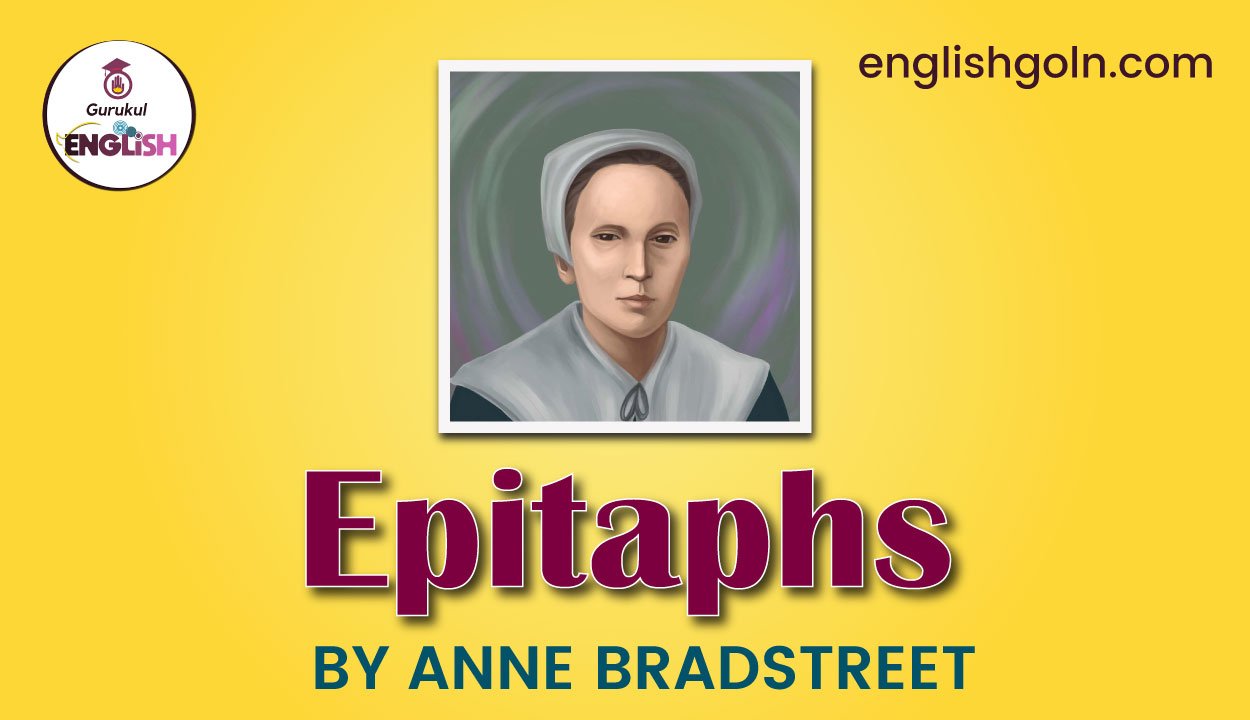Epitaphs by Anne Bradstreet. Anne Bradstreet (March 8, 1612 – September 16, 1672) was the most prominent of early English poets of North America and first writer in England’s North American colonies to be published. She was the first woman to be recognized as an accomplished New World Poet.

Epitaphs by Anne Bradstreet
Her Mother’s Epitaph
Here lies
A worthy matron of unspotted life,
A loving mother and obedient wife,
A friendly neighbor, pitiful to poor,
Whom oft she fed, and clothed with her store;
To servants wisely aweful, but yet kind,
And as they did, so they reward did find:
A true instructor of her family,
The which she ordered with dexterity,
The public meetings ever did frequent,
And in her closest constant hours she spent;
Religious in all her words and ways,
Preparing still for death, till end of days:
Of all her children, children lived to see,
Then dying, left a blessed memory.
Her Father’s Epitaph
Within this tomb a patriot lies
That was both pious, just and wise,
To truth a shield, to right a wall,
To sectaries a whip and maul,
A magazine of history,
A prizer of good company
In manners pleasant and severe
The good him loved, the bad did fear,
And when his time with years was spent
In some rejoiced, more did lament.
1653, age 77
Analysis of Epitaphs by Anne Bradstreet
“Epitaphs” is a poem written by Anne Bradstreet, a prominent colonial American poet of the 17th century. The poem is composed of six epitaphs, short poems that are typically inscribed on gravestones or tombs, each commemorating the life and death of a particular person.
The first epitaph is for a child who died young, and it emphasizes the fleeting nature of life and the inevitability of death. The second is for a man who lived a long life and achieved worldly success, but it ultimately reminds us that all of our earthly achievements will fade away in the face of death. The third epitaph is for a woman who died in childbirth, and it laments the loss of a young life and the sorrow of those who are left behind.

The fourth epitaph is for a man who died in a foreign land, and it evokes a sense of patriotism and national pride, as well as the sadness of being separated from loved ones. The fifth is for a woman who lived a virtuous life, and it celebrates her piety and faith, which Bradstreet suggests are the true measures of a life well-lived.
The final epitaph is for the poet herself, and it expresses her own acceptance of death and her hope for a peaceful afterlife. The poem as a whole is a meditation on the transience of life and the inevitability of death, but it also celebrates the lives and virtues of those who have passed on, suggesting that even in death, they continue to have an impact on the world.

